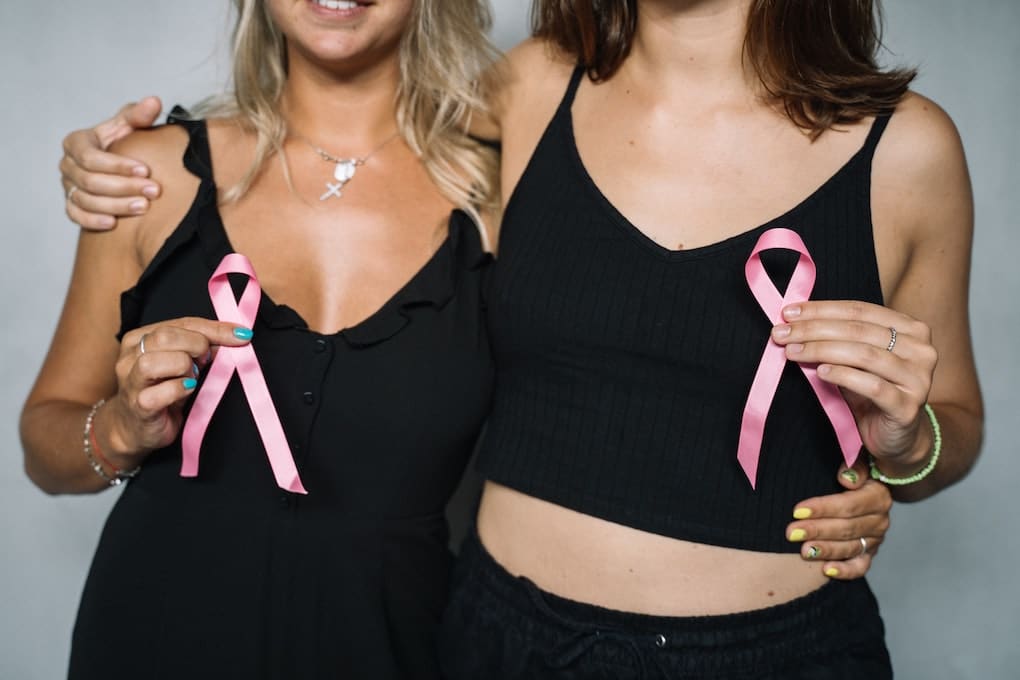Breast cancer screening in Monaco: how and where?

Whether you are a Monegasque, resident or employee in the Principality, there is a solution for you.
As the Pink October campaign has been running for the past month, you may have wondered how you can have access to breast cancer screening in Monaco. Good question! The earlier a cancer is detected, the higher the survival rate. Did you know that breast cancer is the most common cancer in women in France? “60,000 new cases are recorded each year, with 12,000 deaths per year,” says Dr Henri Vinti, Head of Screening and Prevention at the CHPG.
For Monegasque women and residents: organised screening
Breast cancer screening in Monaco is organised, as is colonic and cervical cancer screening. For the moment, it is only aimed at female Monegasques and residents aged between 50 and 80, and who are part of the “normal” population, i.e. with no family history.
“In the Principality, the Centre Monégasque de Dépistage (Monegasque Screening Centre) invites eligible women to be screened based on a list provided by the Monegasque social security fund. Mailshots of 2,500 to 3,000 letters per year are sent out, with a take-up rate of about 10%. That means between 250 and 300 screenings are carried out in Monaco each year”, says the specialist.
Between 250 and 300 screenings are carried out in Monaco each year
SEE ALSO: MEDTECH. InnoDeep: better cancer detection thanks to 3D imaging
The letter includes the telephone number of the Centre de Sénologie (Senology Centre). This is who to call to make an initial appointment and undergo a breast examination (mammogram and ultrasound). The unique feature of organised screening is double mammogram readings. In concrete terms, this means that the images will be examined by two radiologists, instead of one in the case of individual screenings.
For Principality employees: individual screening
Individual screening is aimed at all women who wish to be screened, and in particular Principality employees who are in Monaco’s social security system (again, over 50 years old and not particularly at risk). “These women are not contacted by France, because they do not exist in the French social security system, nor by Monaco, because they are not eligible for organised screening, which is aimed solely at Monegasques and Monaco residents.”
Individual screening therefore involves contacting a gynaecologist to obtain a prescription for a breast examination. Then, “they are perfectly entitled to have their check-up at the CHPG, at the Centre d’Imagerie Médicale de Fontvieille (Medical Imaging Centre), at the Antoine Lacassagne Centre in Nice, or even with a private radiologist,” explains Dr Henri Vinti.
It should be noted that individual or organised screening should be carried out every two years for a woman aged 50 or over, in the normal course of events.
SEE ALSO: Octobre Rose: the CHPG answers your questions
For all: CHPG’s BreastDay
This is a one-day programme that is available to women with suspected breast cancer. “A patient who has been found to have an abnormality on the screening mammogram (whether organised or individual) and wants a second opinion, or a woman who has felt something abnormal on self-examination.”
By calling +377 97 98 99 55, they will be able to have all the necessary diagnostic tests – and results – on the same day.
Is it possible to screen oneself?
“No”, replies Dr Henri Vinti. On the other hand, the Head of Screening and Prevention at the CHPG recommends self-examination once a month from the age of 25. “One week after your period, in front of a mirror, you can perform a self-examination by following YouTube videos, which are often very well done. If she notices a small change in the appearance of the breast, some discharge or if the nipple retracts, the woman can inform her gynaecologist or general practitioner.”
And don’t panic if there is a lump or some discomfort, “there is a 99% chance of the lump being benign,” the doctor stresses, adding that cancer is “rarely painful at the beginning.”









